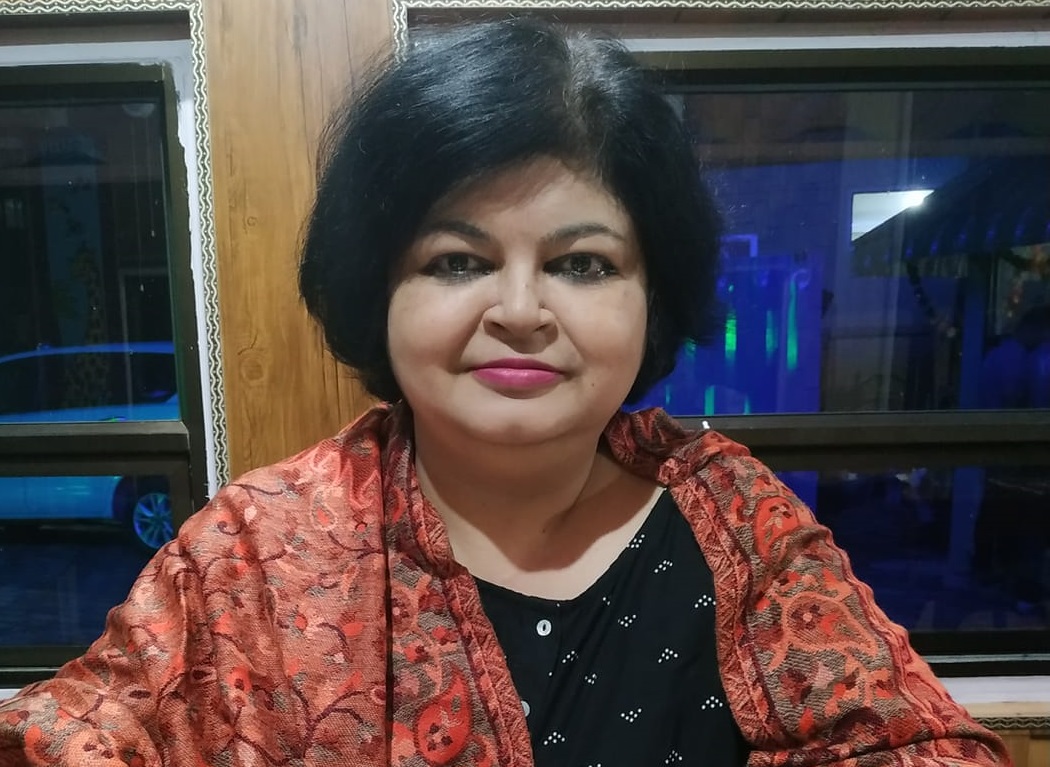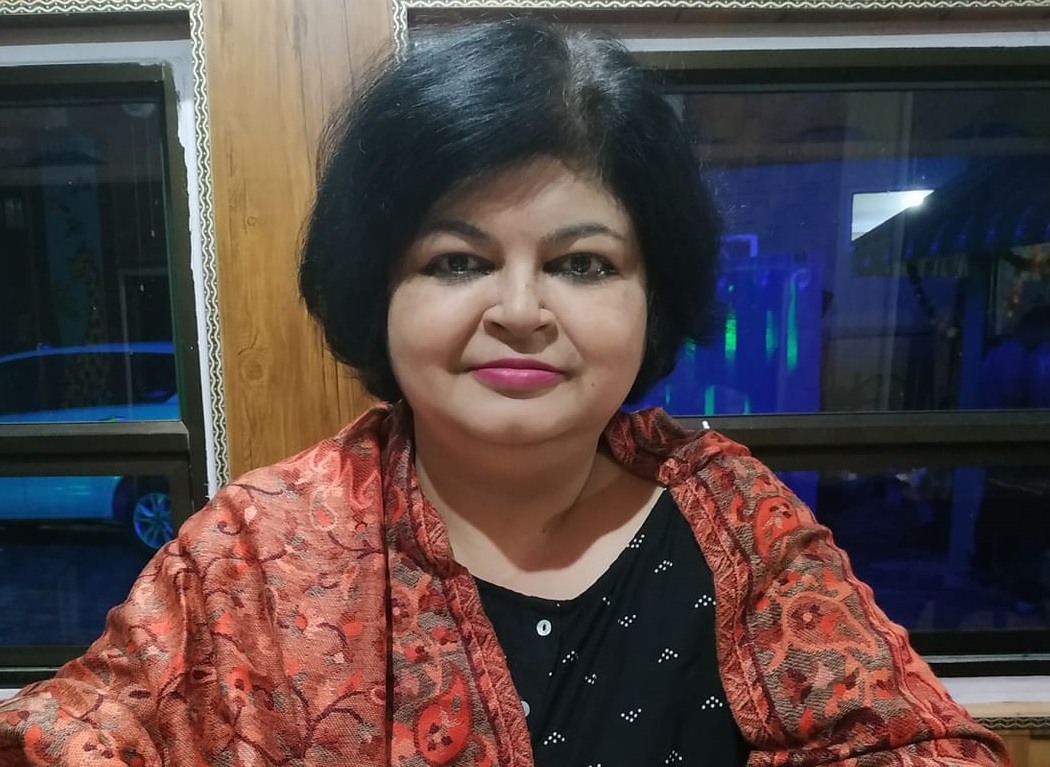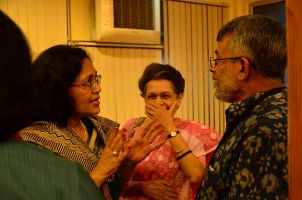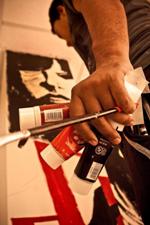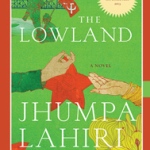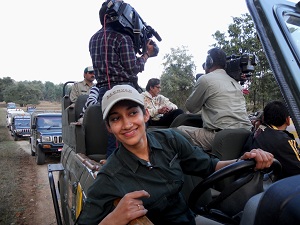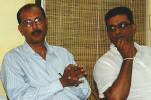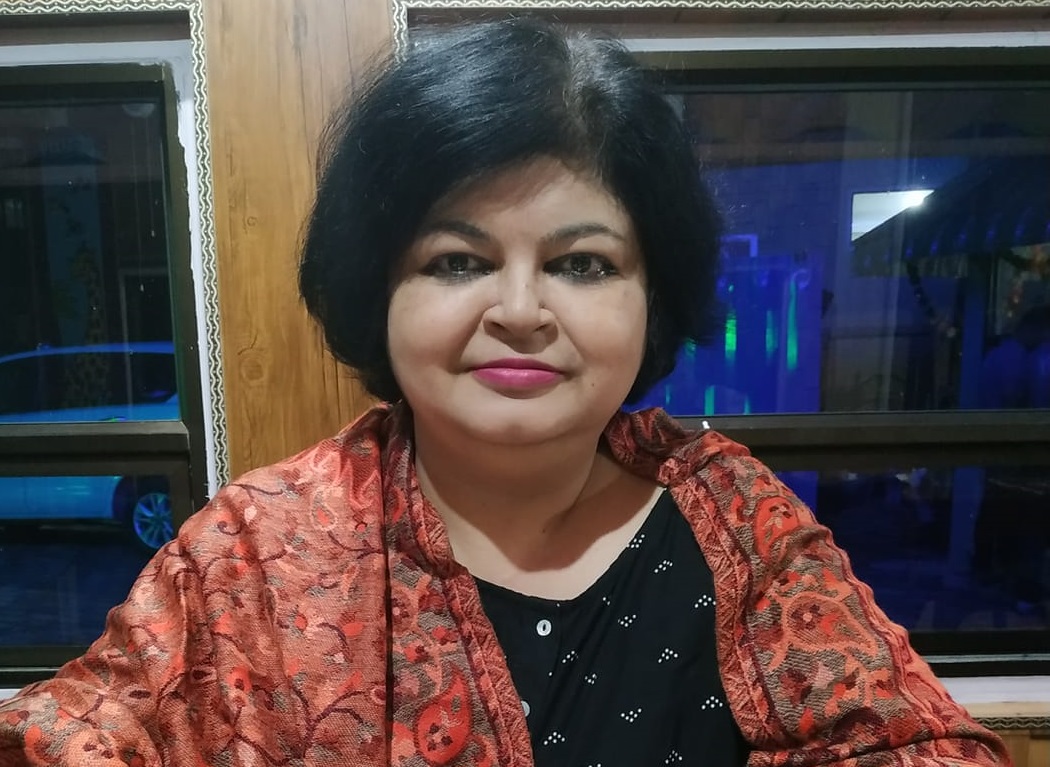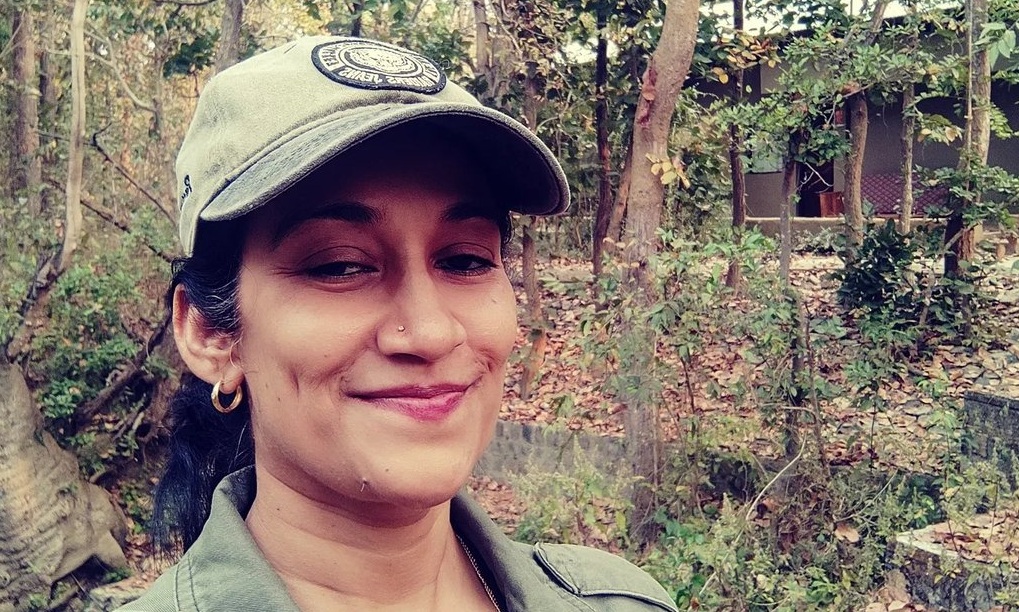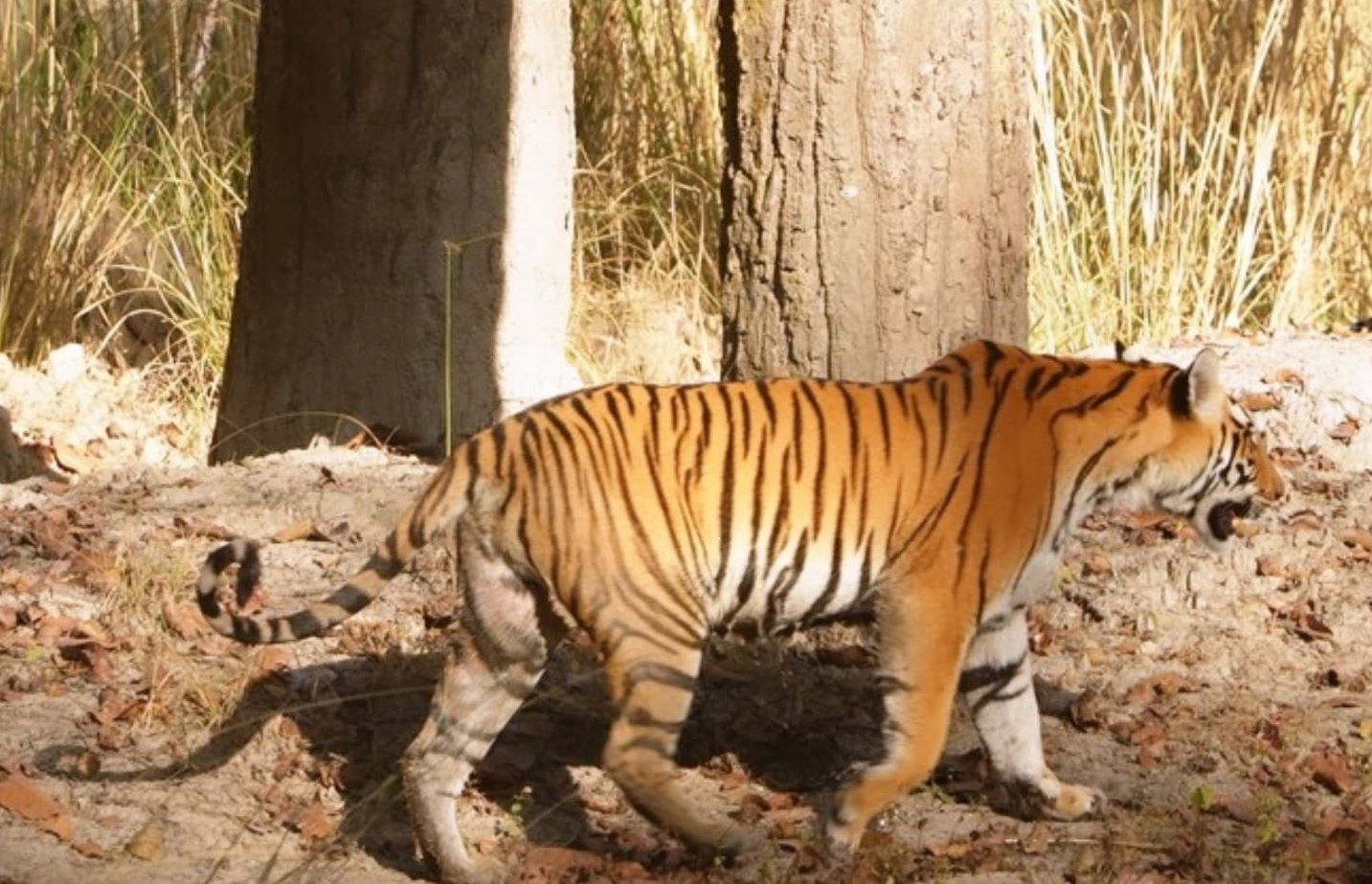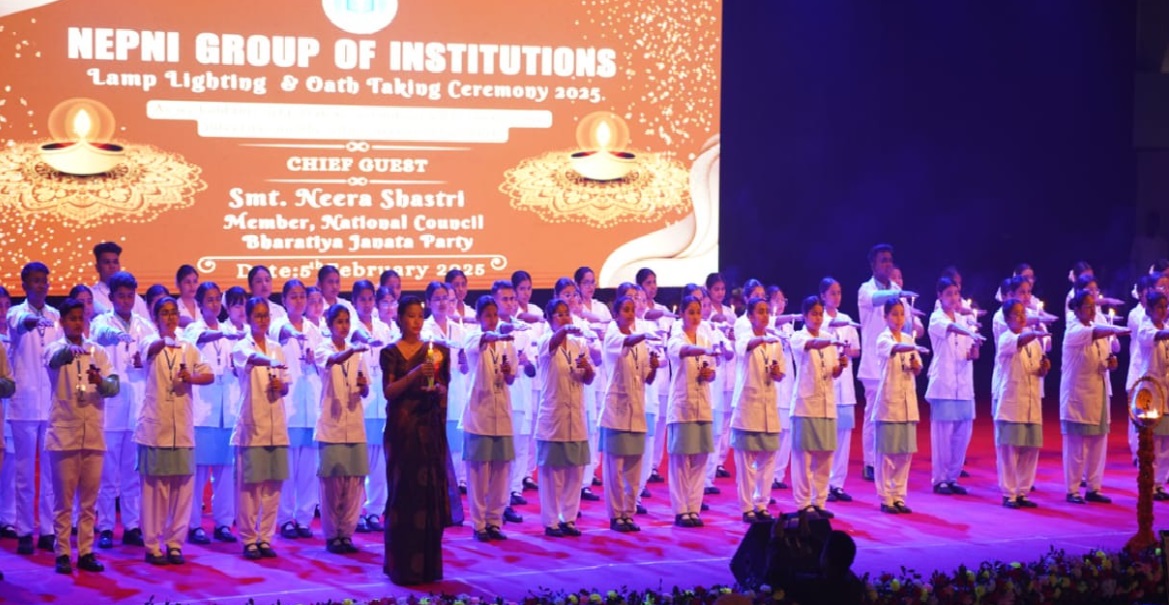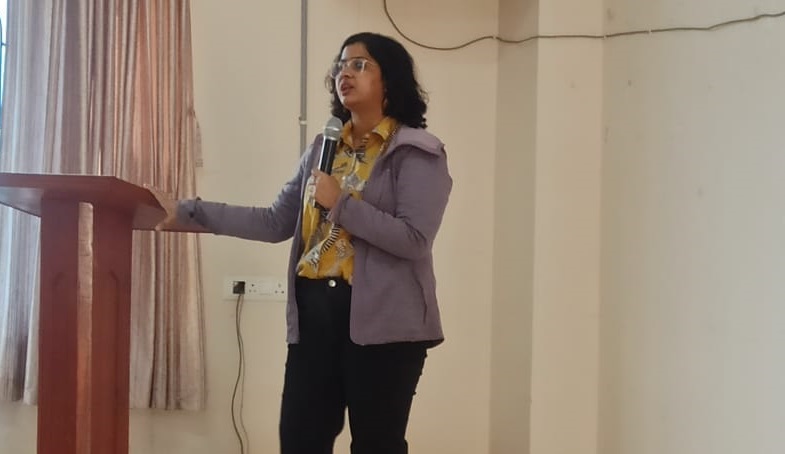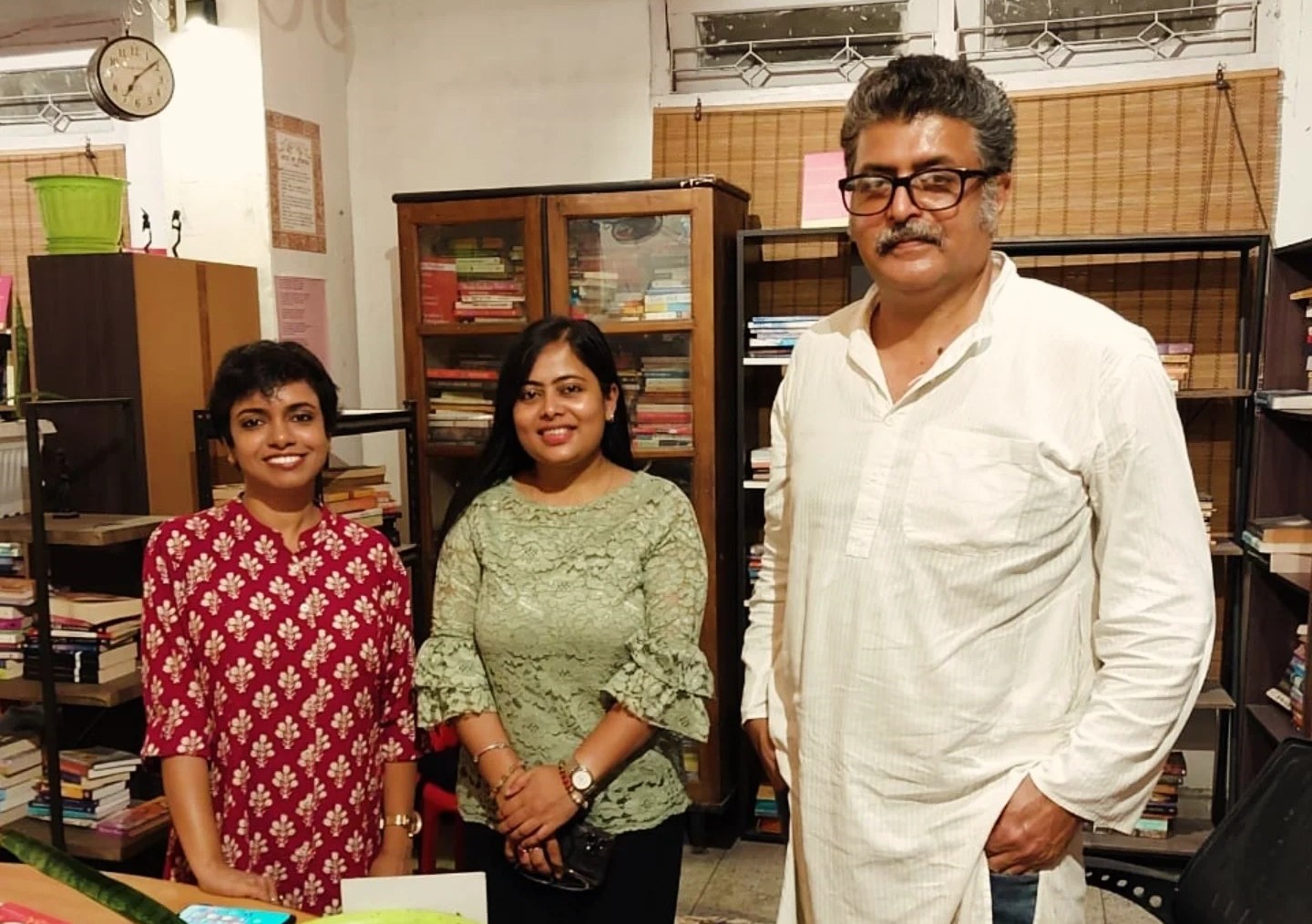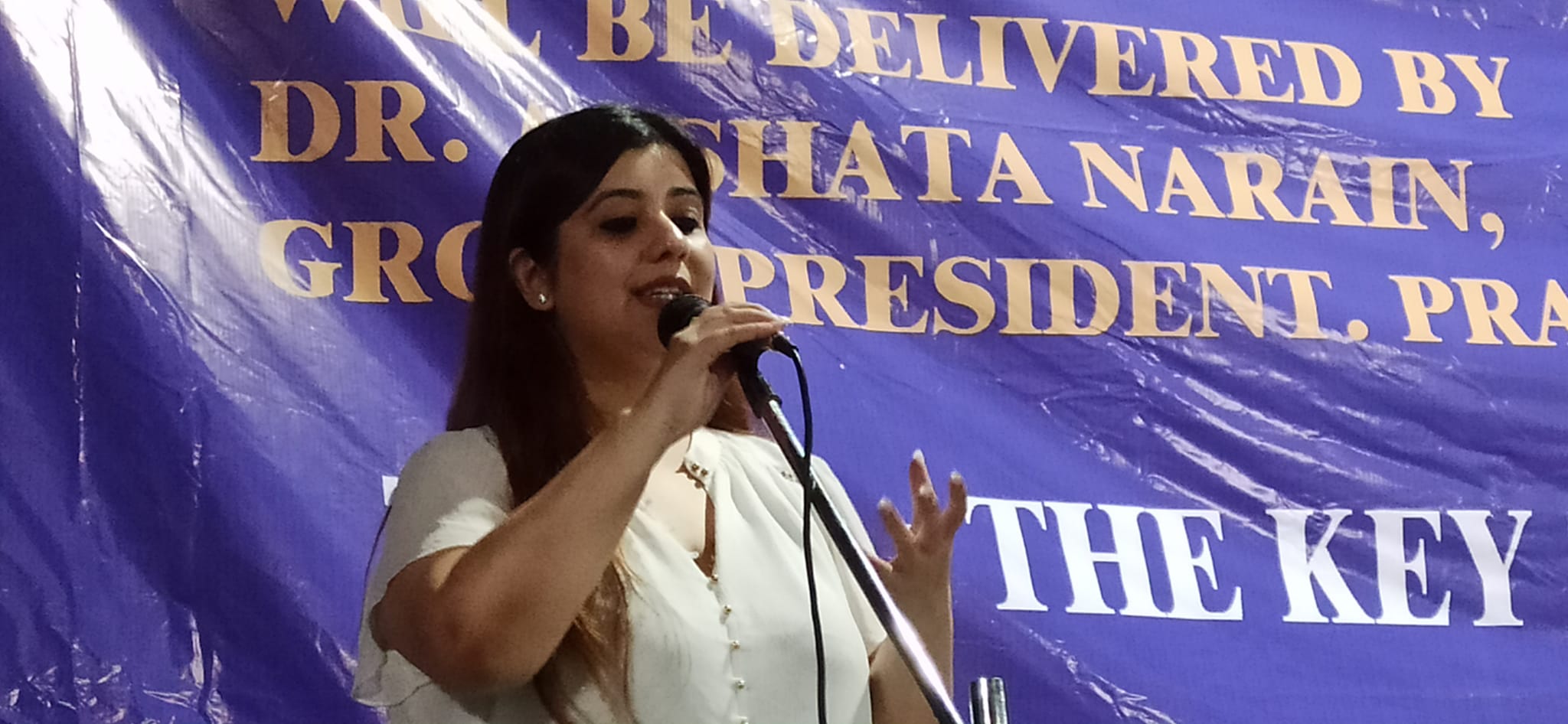BY INDRANI RAIMEDHI
Well, there we were at the club again, on that balmy June evening. The lawns were freshly sprinkled and in the pool, the nubile daughters of club members frolicked in their designer swimwear. Ice cubes clinked in our gin and tonics as Chopin played softly in the background. We were a classy joint. No Daler Mehendi stuff for us. The bearers moved about discreetly in starched turbans and scarlet cummerbands, dispensing kebabs, soda, drinks. The women played cards in an inner room, seated elegantly on faded velvet settees, each face perfectly made up. Yes, this was a perfect world. We were in a cocoon, sanitized from the madness and the chaos of Assam even though we lived in its capital city. We never saw spilled blood or heard the anguished cries of injured victims. No one torched our houses or raped our wives. Yes, some of us had received extortion notes. Subranil Barua told us a witty story of how his wife, a woman of Amazonian proportions, bullied a hapless extortionist into reducing the extortion amount from five lakhs to fifty rupees. We had a good laugh over that. Oh yes, we were safe. Many of us had children who studied at Mayo or Doon School and we hoped they would eventually settle abroad. "There is no future here" is the refrain that always went around. Barua and I sat in the spacious shady porch, nursing our drinks and learning contentedly back on our rattan chairs.
It could have been a scene straight out of a Somerset Maugham story. Somewhere along the way, we got talking about murder. You know how it is. Someone drops a stray comment. Another adds to it. And then you have an animated discussion on a single theme. I was saying there was no such thing as a perfect murder. I was an avid watcher of " Medical Detectives" on Discovery Channel. Forensic science had made such astonishing strides that it was virtually impossible for any murderer to get away. There even was a chemical, luminol, which, when sprayed on any surface, revealed traces of blood which appeared invisible to the naked eye. Chowdhury came along and reminded us of the story where the wife kills her unfaithful husband with a frozen leg of lamb, which she later cooks for the policemen who come to investivate. Saikia said his favourite story was that of a man who killed his wife. Soon after the murder, he was always seen chopping firewood. Enquiries revealed he bought bottles of a sauce at the village store which was meant to make meat tasty. Well, the guy had been eating his own wife and he chopped firewood just to work up an appetite. Just then we were joined by Amar Kakati. He was one of our oldest members, a cherubic, old gentleman with silver hair, ruddy cheeks and kindly, twinkling eyes. He had just won a tennis match against a younger man and looked very pleased with himself. He rubbed his face with a towel, lowered himself into a chair and grunted. "Hmmph ... Murder. Interesting subject. What qualifies a murder to be called perfect?" "Well, when there are no clues", volunteered Barua. "When the motive cannot be established". "When there are no suspects". "When the corpse cannot be traced". "When you cannot find the murder weapon". "Right", Kakati nogged approvingly "we need all these conditions. And I can tell you there is such a thing called a perfect murder, for I committed one myself". "What?" we exclaimed incredulously. We were a pretty blase lot otherwise, but to think of the cherubic old man involved in such a heinous crime was too much to swallow. But he seemed to be perfectly serious. Suddenly his eyes didn't twinkle anymore. They were dark with malice. There was a cruel twist in his lips and his hands looked large.,. lmobbly and menacing. We sat in uneasy silence, wondering why he was confessing. "Well", he said, looking around, "1 wasn't the sole culprit. We were all accomplices, the whole neighbourhood-men, women, even children ... " "Children", we echoed. "Yes, you can't imagine the cruelty children are capable of. Let me tell you about our neighbourhood. It is the most upscale part ofthis city. Rows and rows of beautiful homes with immaculate landscaped gardens, garages filled with cars, durwans at the gates. High walls, sweeping driveways. All of us are established, welllmown, loaded with money-surgeons, lawyers, academicans, technocrats ... " "But why would all of you want to commit murder?" "Patience!" he gave a gentle smile. "It's a long story, quite complicated. We all had our motives. Now, to get on with the story, ourneighbourhood had one imperfection. It was an eyesore.
At the end of our lane was a dilapidated cottage with a tin roof. Its walls hadn't been painted for years. Every monsoon, rain water flooded the house. It was set in the middle of a large plot of land. The grass was growing wild everywhere. Dogs and cows broke in through the flimsy fence. The owner was keen to sell the land. We all had an eye on it. My son, the contractor, wanted to make a swanky new apartment block on it. But there was a snag. The owner had rented the premises to a nephew of his. He was unwilling to move out as the rent was low and he could not afford to pay more. Uncle and nephew argued a lot. But the uncle, the sentimental fool, was unwilling to go to court, saying it was a family matter. So this worm, this Ayushman Das, continued to live in that rotten dump with his wife and brood of four children and would have continued to do so. That is, if we had not taken matters into our own hands ..." He paused and looked around, allowing the words to sink in. By now some of the ladies had joined us. I saw my wife shudder delicately. Kakati seemed to be enjoying the effect he was having on us. He lmocked back his whisky, wiped his lips with a serviette and went on. "You may be excused for thinking we all wanted the land. But it was not as simple as that. You see, this Ayushman Das did not belong to that neighbourhood. He was like a jarring note in a beautiful piece of music. His presence spoiled the whole effect. We could not forgive him for a lot of misdemeanours. He brushed his teeth in the morning in front of his gate. Digusting. His children pissed in the drain in front of our house. They went' to vernacular schools. His wife looked like a retard. She would stand there every evening, calling out cheerily as we passed by. She didn't know her place. And four children ... it was scandalous, multiplying 'like rabbits. Pardon me, ladies, but all of us in the neighbourhood were too busy to make love". He chortled with laughter and called for another whisky. "What got our goat the most was that this Ayushman Das seemed to have no desire to come up in life. A clerk in the department ofland records. Went to work riding a cycle.
It is people like him who give us Assamese a bad name. Land of lahe lahe, filled with lazy, complacent bums. We were sick of him. But we were too well bred to tell him that to his face. So we got rid of him. It was a long, complicated process. We were all accomplices, yet we never discussed it. As if by telepathy, we seemed to know our assigned roles in the plot ... " "Quite by chance, we came to know that this Ayushman Das was not getting his salary. His kids and some of our kids were playing badminton. One of Ayushman's kids lost the shuttlecock. Now one of the rules was that whoever lost a shuttlecock would have to buy a new one. The boy blubbered tearfully that he would buy one only after his father got his salary. Which could be months later. So what do you expect? The kids beat him up. They kicked and pummelled him. Someone took off his knickers. He ran home howling, naked and bruised. Didn't I tell you, when it comes to cruelty, there's no beating the children? After that, whenever one of their kids showed up, our children would shout "No pay! No pay!" till they ran off in shame. "Soon, they stopped coming altogether. But we adults could not go so far. So when Samir's birthday came along, Mrs. Sharma personally went to invite the Das children.
The Sharmas were the wealthiest with a luxmious home that even included a home theatre. Understandably, Mrs. Das was terribly flustered by Mrs. Sharma's unexpected visit. She was sure the lady had come to complain about her children". "1' 11 be glad if your children can come" said Mrs Sharma. "We are having a magic show, a lucky dip and even a fancy dress contest! I know this is a difficult time for you. I can't imagine how you are running the household without a salary. It's none of my business, of course. But I do sympathetize with you. And one thing, please don't buy a present for my son. God knows you're having a hard time as it is". "But she didn't get the message. On the day of the party, her four kids were there, with a crudely wrapped present. The other kids ripped it open and howled with glee at the. cheap fire engine whose wheels came off moments after they touched it. Teasing those kids became more interesting than all the other treats lined up for the evening.Those four kids never showed up after that". "So the wheels were slowly being set in motion.
One day, Das discovered a daily wage earner cutting the grass of his unkempt garden with his sickle. The labourer explained that he had been paid by the Lahkars to do it. Das was pretty rude and yelled at the guy to leave. He had no sense of gratitude, that man. That monsoon his wife got real sick. Some woman trouble. They couldn't afford a doctor. So my wife called her gynaecologist and accompanied her to the house. Das was not at home but he got real mad when he came home and found medicines on the bedside table. They had a furious row that could be heard all the way down the street. Well, the fool had no right to self-respect, if he couldn't keep his family clothed and fed". "Anyway, we went on with our plans. Mr. Lahkar dropped his newspaper at Ayushman's doorstep every morning. The milkman was paid by someone else to deliver two bottles of milk to the Das household. The dhobi refused payment for their clothes he washed and ironed. "One day, Mrs. Das could not pay the full bill at the grocery shop. Immediately five neighbours surrounded her with their wallets. She was flustered and almost in tears.
Then the ladies of the neighbourhood got together and made a large parcel of all the clothes their own children had outgrown. Then they set off in a delegation to Ayushman's house. He was sleeping inside. Dipti, that silly woman, was simply terrified. Please go away, she begged. We don't want anything. My husband will be very angry. Please leave us alone." "The women were made of sterner stuff. Look here, they said. Your children are going around practically naked. Your daughters' wear frocks that are indecently short. Soon winter will be here. You want them to die of pneumonia? Is your self respect more important than their lives? As for your husband, why tell him about this? Men don't notice such things. We have only your best interests at heart. This neighbourhood is like one family". "What could she do? She touched their feet and snuffled tearfully in to her chadder. After that, she yielded easily to the flood of generosity. Casseroles of piping hot food were sent through servants to the Das household. Someone paid for the little girls' music lessons.
Mrs. Sharma took them out to have hair-cuts at the barber's. When the new academic session came along, all the four children got new exercise books". "Meanwhile, Ayushman Das was at the end of his tether. His eyes had a wild, haunted look. The flesh melted away from his body. He didn't bother to shave. He sold his bicycle and walked to work. Fourteen months without salary. Sometimes he would stay away from office and just sleep at home. He beat up his kids on the flimsiest pretext. He was on the point of no return". "The flashpoint came sooner than we anticipated.
We have a Durga Temple in the neighbourhood. We have apuja every year and some of us men formed a committee. We announced that there would be a meeting the following Monday and everybody was expected to donate money and take part in the proceedings. We gathered in a large hall behind the temple. Lahkar was the president. As the treasurer, I collected the donation amounts.
The meeting was well under way when the door burst open and Ayushman Das stumbled in". "Why was I felt out?" He demanded preremptorily. "Am I not a resident here?" "Here, take your place:, said Sharma., soothingly, patting the chair next to him. "I demand an explanation", Ayushman'e eyes glittered like a madman's. He had come in his striped pyjamas and a faded shirt. "Remember who you are", said Lahkar sharply. "A clerk of the land records department does not behave like this in' front of judges, professors and engineers". "Das, we've tolerated you far enough", Sharma said testily. "You are a dammed nuisance. You know very well why we did not call you. We wanted to save you the trouble of paying the donation amount. We know your troubles, oh yes, we do". "Look mister", Ayushman shook a warning finger". Don't talk in that tone to me. I'm not riffraff. I can afford the donation. Here, take this hundred rupee note .... you want more? I'll give you more. Here .... help yourself'. "Oh, did you sell one of your children?", called a voice from the back. There was a gust oflaughter. Ayushman paled. He clenched his fists, "Who was that bastard?" "Mind your tongue", I said brusquely. "We don't want your money. Buy yourself some groceries with that. We have all been contributing to your household expenses. You know that, don't you? Newspaper, milk, food, stationery, fees, even clothes for your children. You think you can buy your selfrespect with a measly two hundred rupee donation? You lost it long ago, man. It won't be long before your wife does something dishonourable to feed your children. Then where will your self-respect be, Mr. Das? "Amar Kakati give us a wicked grin and sipped his whisky." That did it. Ayushman went wild. He started cursing and yelling, overturning tables and chairs. I got a punch in the nose. Two able-bodiled youths dragged him home. He was a real nut-case. We began our preparations for Puja.
The goddess was installed in the temple on the day of Sasthi. Our wives and children wore new clothes. In the Das household, it was ominously quiet. And on Ashtami night, when Dipti's shrill screams rent the night air, we knew our plan had worked". "What do you mean?" I asked. The others edged closer. "We did everything. We all took charge. What are neighbours for, after all?" "What happened?" Renu whispered. "Well, Ayushman had stopped eating after the fracas at the temple premises. That night Dipti woke up to find her husband's place on the bed empty. The kitchen light was burning. She saw him seated on the dining chair, drinking a glass of milk. She felt very relieved. He smiled at her and apologised for his temper. He took her to the children's room. He woke them all up and they hugged each other. A touching scene really. Then he doubled up, started vomiting, writhing in the floor. It wasn't milk that he had been drinking. It was phenol from the bottle under the sink. They tried to hold him down as he convulsed to death. Dipti's cries had us running to their house. The doctor shook his head. My wife gently wiped off Dipti's vermilion dot. Her children were brought to my house for the night. We had a nice, decent shradh, followed by a tasty feast. Ayushman's sons wore baseball caps over their shaved heads.
A month later, Dipti went off with her children to her mother's house at Lakhimpur. The uncle sold my son the land. He has put up a signboard, Ayushman Apartments. Isn't that rather thoughtful?" He looked around at us, smiling. "Now isn't that what you would call a perfect murder? No clues, no suspects, no motive. No violence. A murder that used psychology, a murder where there are accomplices working with quiet, skilled discretion. Don't you think there is an aesthetic element in the whole plot, a coming together of several elements?" We had no reply. Suddenly I wanted to leave the club. Suddenly the night seemed full of menace. Suddenly I did not like Amar Kakati anymore. Kakati walked us to the car. As we got in, he bent down and said with a low chuckle. "We did have a murder weapon, don't you think so? A weapon more potent than a bullet ... "What?" I asked, starting the engine. "Kindness. We killed him with kindness", he said, smiling like an angel in the gathering darkness.
